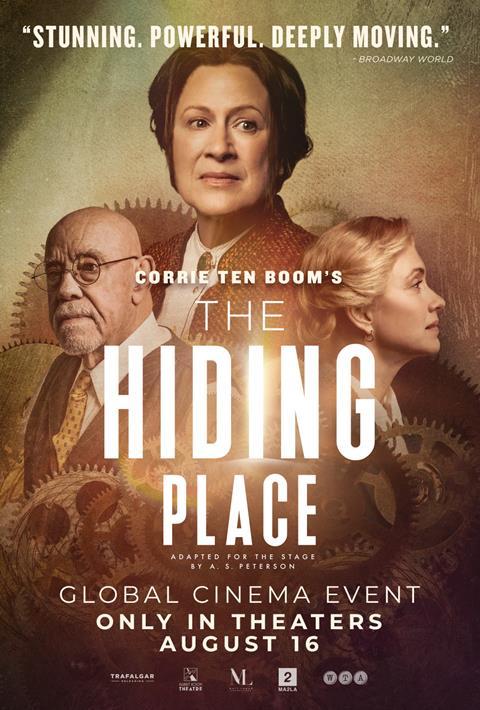Veronica Zundel says the unusual approach taken in the recent screen adaptation of The Hiding Place is a necessary reminder of the horror of the holocaust.

When I was a young Christian in the early 1970s, The Hiding Place by Corrie Ten Boom (published 1971 by Hodder & Stoughton) was essential reading for every Christian. Like other ‘martyr memoirs’ of the time, it was an edge-of-the-seat account of Christian heroism in the face of oppression. However this one was somewhat different in that it told the story of two middle-aged sisters and their elderly father in the Netherlands risking their lives by hiding fugitive Jews who were then passed on to their brother’s old people’s home and thence to emigration. Inevitably, the family were betrayed and shipped off to concentration camps, the sisters to Ravensbrück where younger sister Betsie died of illness while Corrie survived to be a witness to what she had seen.
A 1975 film was made of the story, which I believe I saw but of which I can remember nothing, though it was nominated for a BAFTA award. Now a new film has been released, taking a very different approach as it is a filmed version of a successful stage play. This would not normally be my favoured way to see either theatre or film; and indeed for the first hour or so I found the scenes rather artificial, the acting stilted and the assumed Dutch accents of the American cast irritating. What stood out most for me in the first part (the film is two-and-a-half hours long) was the ‘flash forward’ scenes where Corrie is subject to interrogation by a Nazi commandant, and she insists repeatedly that she hid no Jews and stole no ration cards for them. These scenes become a battle of conscience for her as the Nazi taunts her with the idea that Christians should not lie.
the horror of the Holocaust has become almost a commonplace, and we need shocking into seeing it clearly by approaching it slantwise
It was these ‘out of time’ scenes, physically separated from the rest of the stage set, that brought me to realize that the whole play is written and acted in a non-naturalistic style, with sets consisting of little more than movable partitions, forward and backward leaps in time and even scenes where the child Corrie and the adult Corrie exist in the same scene and speak each other’s words. Once I had got used to this, and especially once in the essentially absurd setting of the camp, I began to find the story intensely moving and poetic. Perhaps, in fact, such a well-known and extreme story can only be told nowadays in this oblique style – the horror of the Holocaust has become almost a commonplace, and we need shocking into seeing it clearly by approaching it slantwise.
Read more on films
Are you there, God? It’s me, and I’m like Margaret
The new Little Mermaid is black and here’s why that’s important for all young girls
The film takes some liberties with the details of the true story, for instance inventing a young Nazi who comes as an apprentice to the ten Boom’s watchmaker father and who later stands in for the camp guard whom, in real life, Corrie encountered at a conference and chose to forgive. This however works well in terms of dramatic tension; and it is used to highlight Corrie’s struggles with anger and the difficulty of forgiveness, something which Christian-made accounts can sometimes gloss over in their attempt to portray their hero/heroine as a saint (in fact Betsie was the more saintly one in terms of compassion for enemies).
I don’t know whether the makers of this film (or the playwright) are Christians, but they clearly well understand the Christian ethos of the ten Boom family and where it led them to. This is a slow-burning but haunting film which at moments brought me to tears, and for those in today’s generation of Christians who may not know the story it will be a good introduction. It could also be a powerful witness to non-Christians who might be more impressed by the actions of Christians than by our words.
More information at thehidingplacefilm.com
The Woman Alive podcast is out now! Available on Premier.plus, Spotify, Apple Podcasts or wherever you get your podcasts. Please do rate and review the podcast and share the episodes you’ve enjoyed, with the women – or indeed men! – in your life.



































